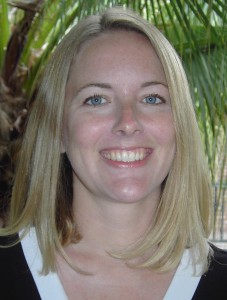I first met Rebecca A. Eldredge, PhD a little less than a year ago. She was moving to Traverse City, MI and she contacted me. I always love meeting with new clinicians. It’s great to welcome them to our beautiful area and find ways to connect. I never know how our skills and interests will overlap. Some people see new clinicians as competition, for me I just like getting to know new people in the field. More times than not, we both end up strengthening one another.
As I have said in past guest-blogger posts, I invite people to write for Practice of the Practice when I believe that they have skills, experience, or expertise that are beyond my areas of knowledge. Rebecca A. Eldredge, PhD is one such example. Her background in teletherapy is something I have yet to dive into.
She told me that once she started writing, she just kept going. That’s why I’ve divided her posts into three separate blog posts. Since this is such a new topic, devoting time and writing to it is important. Also, keep in mind that Rebecca A. Eldredge, PhD is not a lawyer, accountant and is offering her point of view. Make sure you check with your own state regarding teletherapy and what is allowed. With that said, take it away, Rebecca!
-Joe
My professional foray into “teletherapy”
By: Rebecca A. Eldredge, PhD
My first interest in what I now know to be called “teletherapy” in the professional vernacular occurred as I had long-term clients move away from my immediate geographical area. In some cases we used that as a natural termination point and in others we facilitated a transfer to a new therapist in their new area.
However, in a couple cases, switching to a new therapist or discontinuing did not feel like it was the client’s preference, nor in the client’s best interest therapeutically, based on the timing and current therapy status. An abrupt move in which they wanted a couple transition sessions or having achieved a solid therapeutic alliance and progress with current status in more of a “maintenance” phase were some causes to pause thoughtfully.
Clients voiced their concerns about “starting over” with someone new or taking a break when they were in the midst of a major transition and advocated for their preference to pursue options that would allow us to continue working together. We’d evaluate and discuss possibilities, I’d consult with colleagues, and we’d reflect on the pros and cons of various scenarios with an eye on the APA ethics principles and codes, the clients’ preferences and best interests, and the use of multicultural ethical decision-making models.
Checking in with clients
In a couple of cases, we determined that video or phone sessions were the best and preferred option, in line with applicable ethics codes, and multiculturally and therapeutically appropriate. Hence, my first experiences with teletherapy were born. As I tried it for the first few times, I checked in frequently with clients about whether it was meeting their needs, how we might improve it, and whether an alternative might, at any point, be better. The responses were 100% positive. It seemed that the idea of video or phone sessions did have a useful role to play, at least in these somewhat limited and specific circumstances.
As I began to more concretely plan a move across the country, however, and started informing clients I would be leaving the area in a few months, I received additional client-initiated requests and invested additional attention into teletherapy and its unique set of parameters.
Moving on?
I didn’t initially plan to continue a practice in Houston following my move to Michigan. However, I did have the limited experience and familiarity with teletherapy for those previous rarities of client moves and transitions, so I was familiar with the concept when clients expressed concerns about transitioning their therapy a strong desire to continue working together remotely. In multiple cases, they specifically asked whether a video or phone option might be considered. So, consider I did.
Doing the research
As a result of these requests, I expanded my research into a more in-depth exploration of the possibilities and pitfalls of teletherapy. I profess I’m not an expert; however, as I’ve had more and more colleagues, clients, and friends express curiosity and interest, I decided to share some of the general information I’ve learned through my own process. In the coming segments, I’ll try to cover basics of such as background and evidence for teletherapy, evaluating when and for whom it is appropriate, how to choose a video-platform, legal considerations, and insurance limitations, from my own perspective.
This information is based on several sources including reading many, many articles, consulting with the legal expert through APA Trust Liability Insurance, and attending webinars and continuing education seminars specific to the use of teletherapy.
Rebecca Eldredge, PhD is a licensed psychologist currently residing and practicing in Traverse City, Michigan. She graduated with her doctorate in counseling psychology from Southern Illinois University at Carbondale, completed her predoctoral internship at University of Oregon’s counseling center, and finished her post-doctoral fellowship at University of Houston’s counseling center prior to beginning her independent practice in Houston, Texas. Her professional passions include offering individual and couples therapy to adults, working with and facilitating trainings for cultural competency and diversity, and providing clinical supervision. Based on these interests, Rebecca has also enjoyed working with refugee support programs, teaching applied clinical courses, and engaging in local volunteer and advocacy opportunities. Rebecca’s personal passions include the outdoors, travel, and connections with family and friends.
Photo from Creative Commons, thank you MShades



